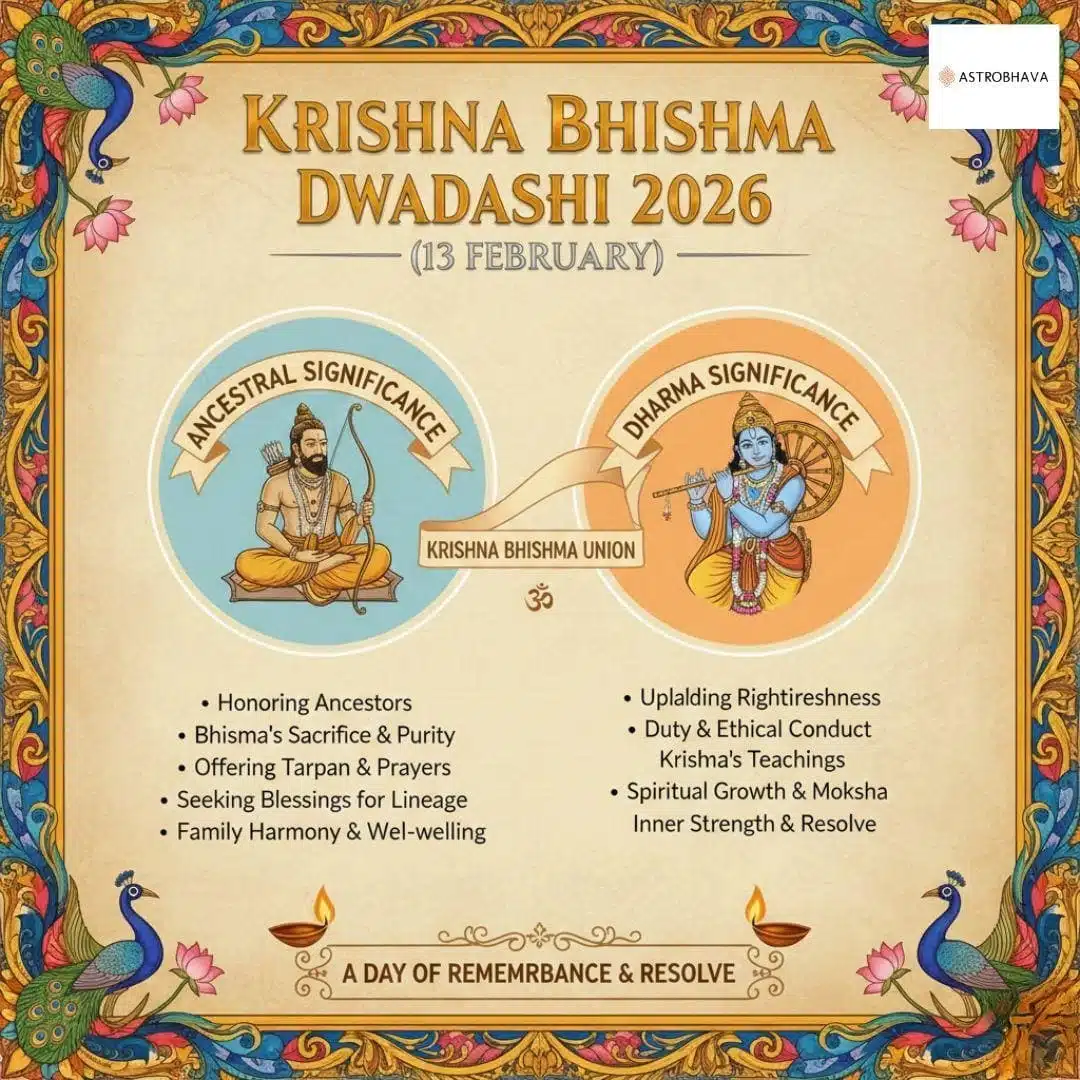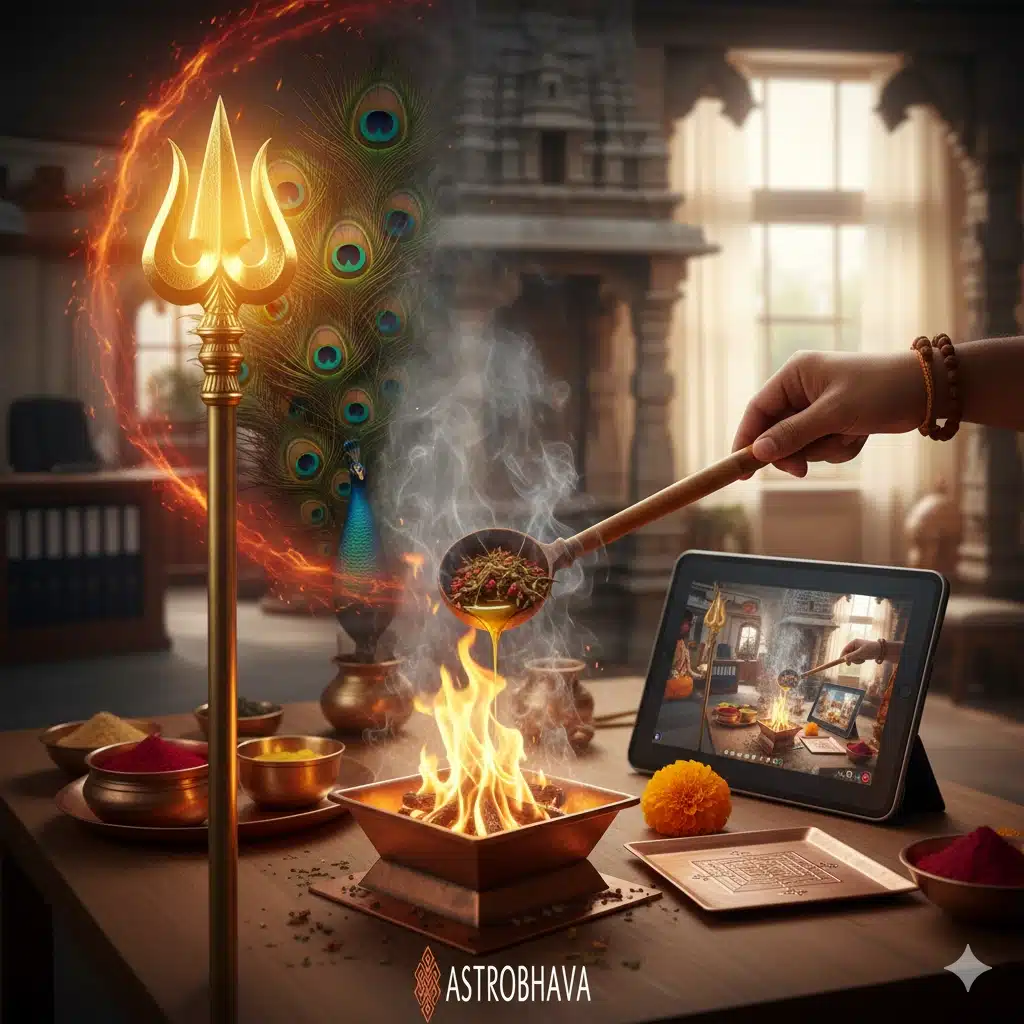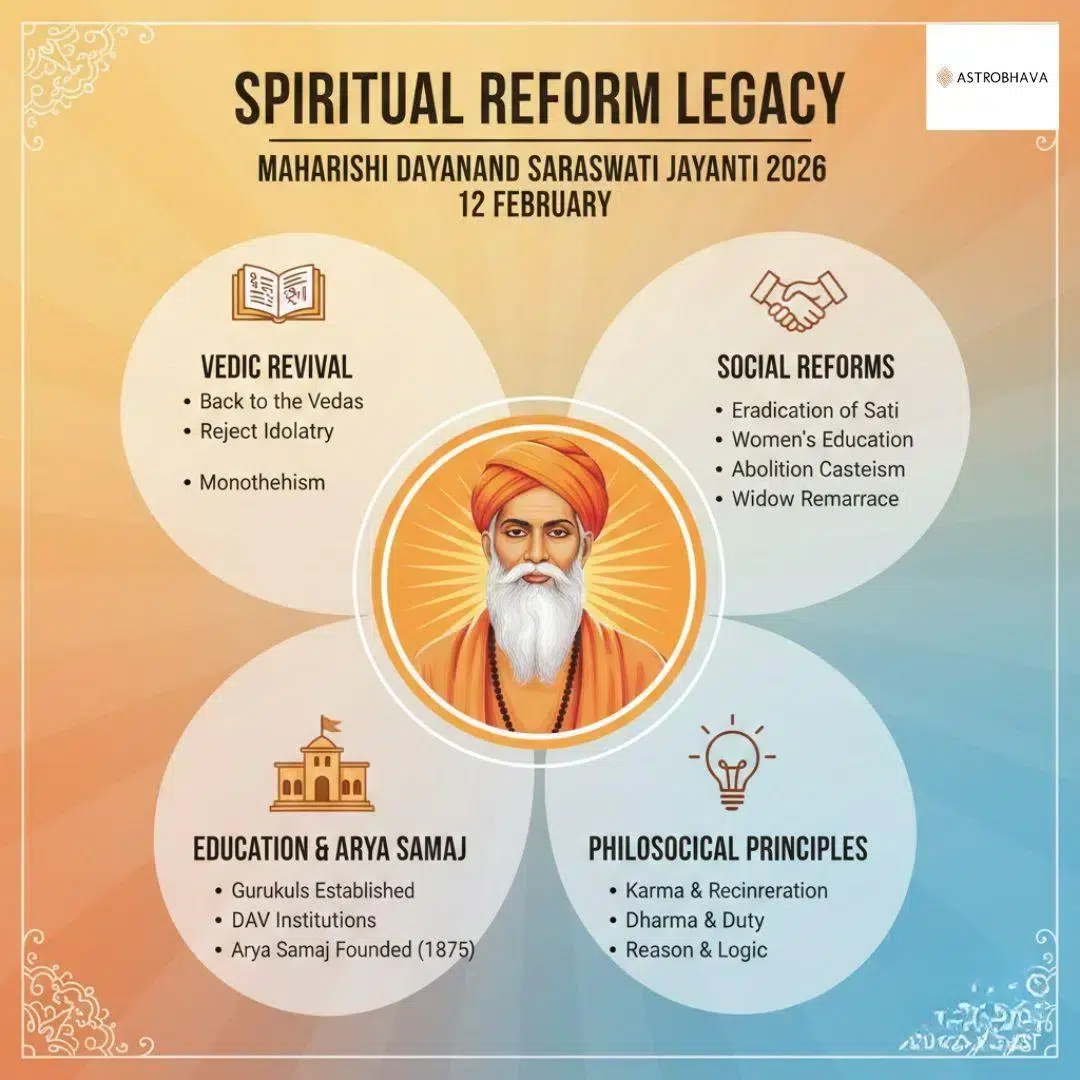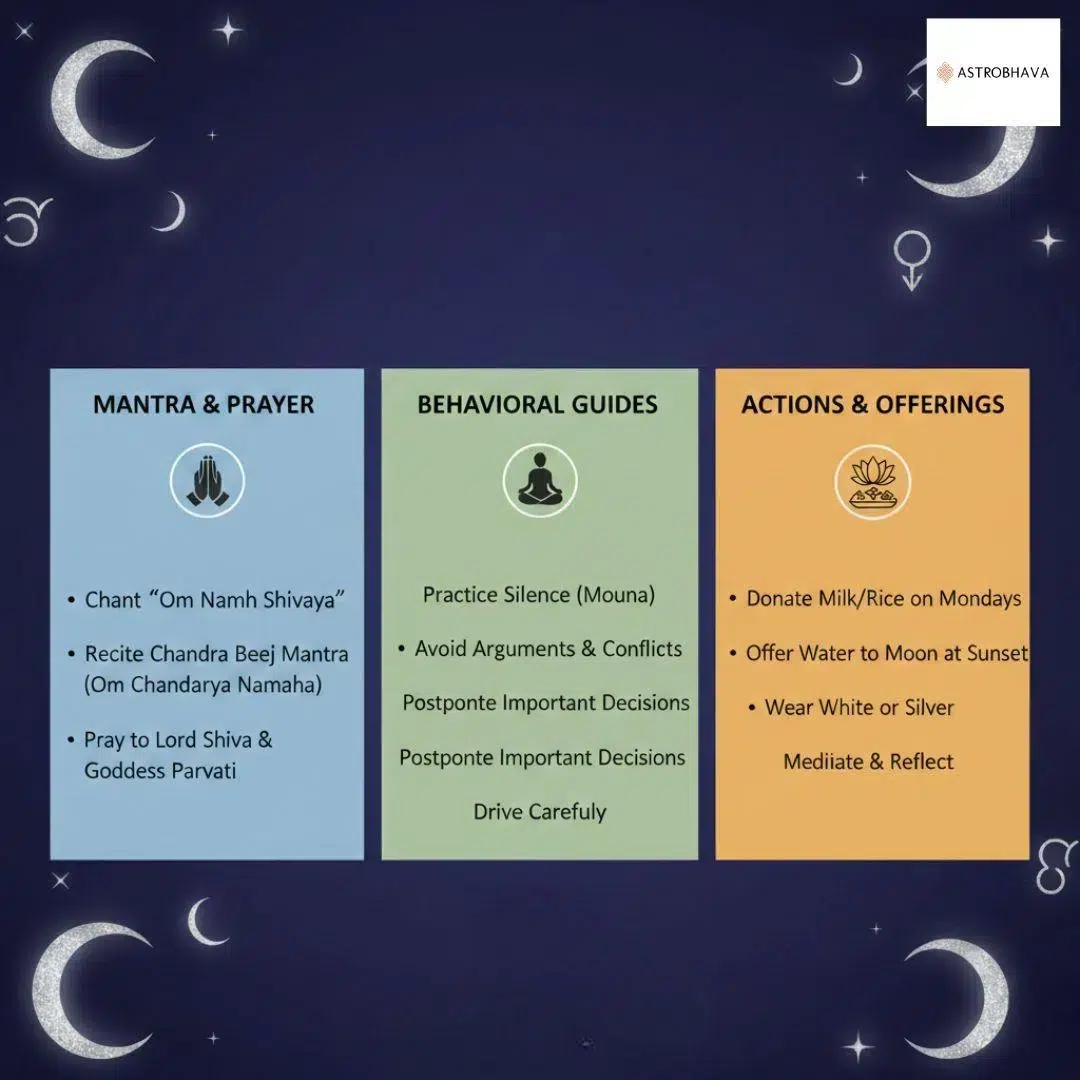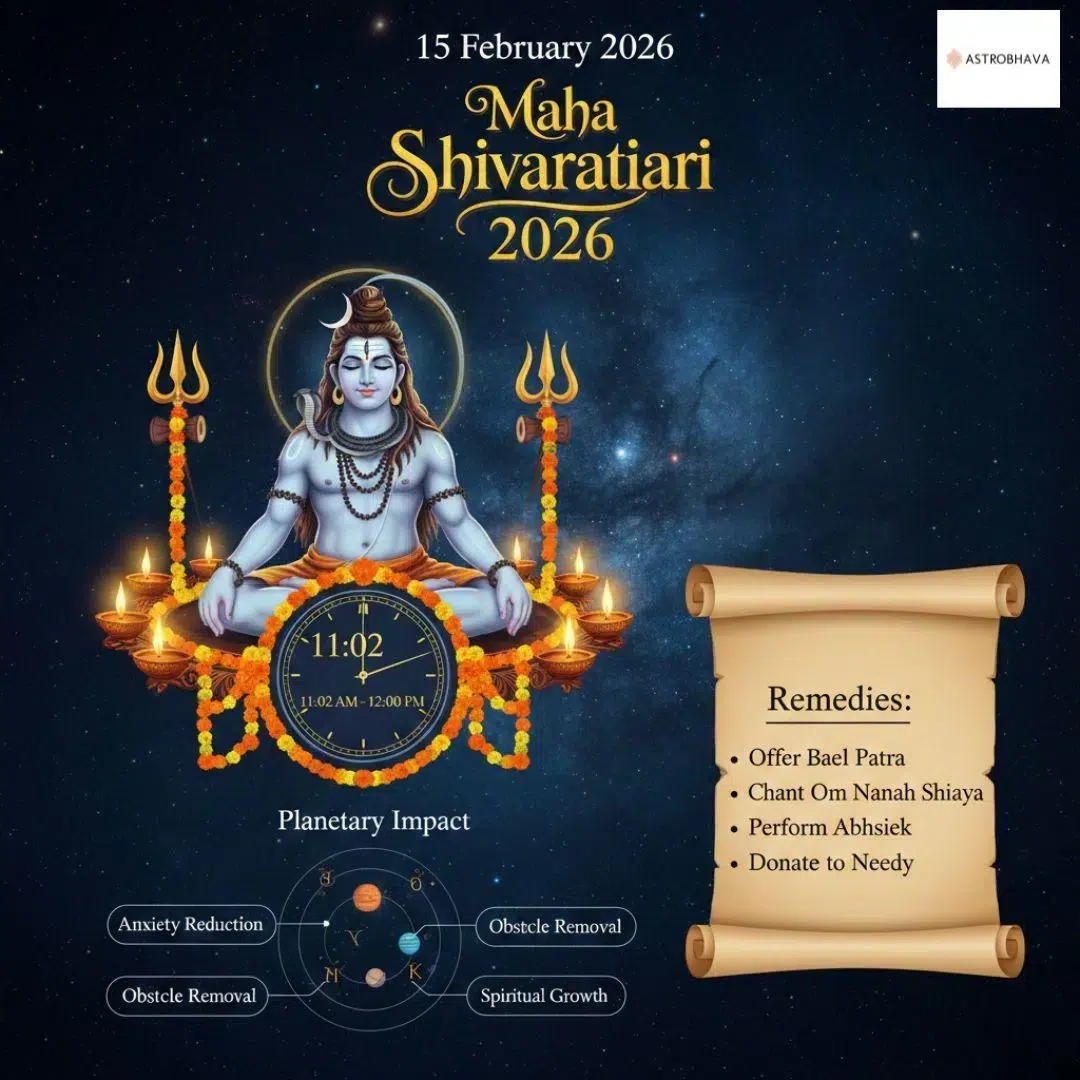Pausha Putrada Ekadashi in USA: Significance and Rituals
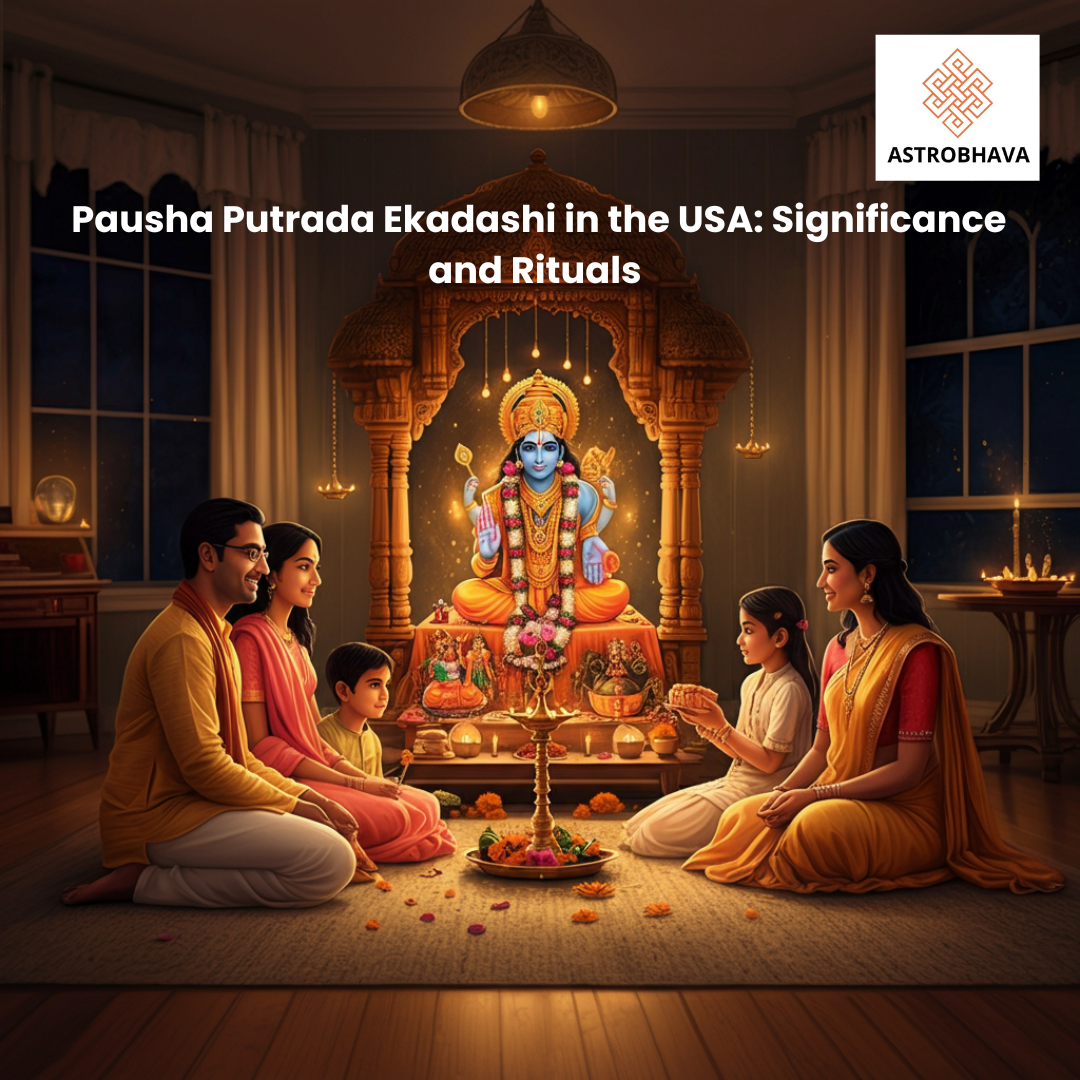
Ekadashi is one of the most significant days in the Hindu lunar calendar, observed with great devotion by followers of Lord Vishnu across the world. Among the 24 Ekadashis in a year, Pausha Putrada Ekadashi holds a special place, especially for couples praying for progeny. In the United States, where many Indian families reside, this sacred day is observed with the same devotion and rituals as in India, albeit adapted to local circumstances.
In this blog, we explore the meaning of Pausha Putrada Ekadashi, its rituals, and how devotees celebrate Ekadashi in the USA.
What is Pausha Putrada Ekadashi?
Pausha Putrada Ekadashi falls during the Shukla Paksha (waxing phase of the moon) in the Hindu month of Pausha, corresponding to December or January in the Gregorian calendar. The term “Putrada” translates to “giver of sons,” signifying the Ekadashi’s focus on blessings for progeny, family welfare, and harmony.
The Pausha Putrada Ekadashi meaning lies in its association with seeking divine intervention for having virtuous children. On this day, Lord Vishnu, particularly in his Narayana form, is worshipped for granting wishes related to family prosperity and lineage continuation.
Significance of Ekadashi in the USA
Ekadashi, the eleventh day of the lunar cycle in Hinduism, holds immense spiritual and cultural significance for Hindus around the world, including the growing diaspora in the United States. With its emphasis on fasting, prayer, and devotion to Lord Vishnu, Ekadashi has become a way for Indian families in the USA to stay connected to their roots, uphold their traditions, and maintain a spiritual lifestyle despite living far from their homeland.
Here are the key aspects that highlight the significance of Ekadashi in the USA:
1. Preserving Cultural and Spiritual Identity
For many Indian families in the USA, celebrating Ekadashi is an important way to preserve their cultural and spiritual identity. The practice of fasting, reciting prayers, and performing rituals on this auspicious day allows them to stay connected to their traditions and pass them on to the next generation.
- Temples in major cities like New York, Los Angeles, Chicago, and Houston often host special events and group prayers on Ekadashi.
- Indian communities frequently organize satsangs, kirtans, and spiritual discourses to bring devotees together.
2. Spiritual Discipline in a Fast-Paced Environment
In the busy and fast-paced lifestyle of the United States, Ekadashi provides an opportunity to pause, reflect, and reconnect with one’s inner self. Observing the Ekadashi fast helps devotees practice discipline, self-control, and mindfulness, which are increasingly relevant in today’s stressful environment.
- Many devotees in the USA observe a traditional fast by abstaining from grains, lentils, and heavy foods, or they opt for lighter meals consisting of fruits and milk.
- The fasting ritual serves as both a physical detox and a spiritual cleanse, helping devotees feel rejuvenated and focused.
3. Adapting Rituals to Modern Contexts
While the rituals of Ekadashi have been traditionally performed in India, devotees in the USA have adapted them to suit their modern lifestyles and local circumstances. This adaptation ensures that the essence of Ekadashi remains intact, even in a different cultural context.
- Families unable to visit temples often set up small altars at home, performing pujas and chanting Vishnu mantras.
- Temples in the USA use digital platforms to live-stream pujas and spiritual discourses, allowing devotees to participate remotely.
4. Community Bonding and Unity
Ekadashi has become an occasion for community bonding among Indian-Americans. Local temples and Hindu organizations organize special events for Ekadashi, bringing together people of all age groups and backgrounds.
- Devotees gather to chant the Vishnu Sahasranama or listen to the Ekadashi Vrat Katha, fostering a sense of unity and shared purpose.
- In temples, group prayers and bhajans create an uplifting atmosphere, helping individuals feel connected despite being far from their homeland.
5. Passing Traditions to Future Generations
For Indian families in the USA, Ekadashi is a valuable teaching moment for children and young adults. Through active participation in the rituals, younger generations gain a deeper understanding of their heritage and the spiritual wisdom embedded in Hindu practices.
- Parents often involve their children in simple rituals, such as lighting a lamp or chanting basic mantras.
- Listening to the Ekadashi Vrat Katha helps instill moral and spiritual values in children, such as discipline, devotion, and the importance of selflessness.
6. Ekadashi as a Global Spiritual Practice
With the universality of its principles—discipline, devotion, and mindfulness—Ekadashi has the potential to appeal to people of diverse backgrounds. In the multicultural environment of the USA, the practice of Ekadashi has also sparked interest among non-Hindus who are drawn to its spiritual and meditative aspects.
- Yoga and wellness communities in the USA have shown interest in fasting and meditation practices linked to Ekadashi.
- Some temples organize open events, inviting individuals from different faiths to learn about the spiritual significance of Ekadashi.
7. Enhancing Devotion to Lord Vishnu
Ultimately, the observance of Ekadashi in the USA is a testament to the unwavering devotion of Hindus to Lord Vishnu. It is a time to seek his blessings, offer gratitude, and strengthen one’s spiritual connection.
- The chanting of Vishnu mantras, participation in pujas, and offering of Tulsi leaves to the deity are seen as acts of pure devotion.
- Ekadashi’s emphasis on prayer and selfless acts (such as charity) inspires devotees to lead a life aligned with dharma (righteousness).
Rituals of Pausha Putrada Ekadashi
Observing Pausha Putrada Ekadashi involves a combination of fasting, prayers, and acts of devotion to Lord Vishnu. These rituals are designed to purify the mind, body, and soul, allowing devotees to seek divine blessings for progeny, family harmony, and spiritual growth. Below is a detailed guide to the rituals performed on this auspicious day.
1. Fasting (Ekadashi Vrat)
The most significant aspect of Pausha Putrada Ekadashi is the fasting (vrat), which is observed with strict discipline. There are different levels of fasting, depending on the devotee’s health and commitment:
- Nirjala Fast: A strict fast where devotees abstain from food and water for the entire day.
- Phalahar Fast: A lighter fast where devotees consume fruits, milk, and other non-grain items.
- Partial Fast: Some devotees avoid grains, lentils, and heavy food but eat light meals.
Fasting begins at sunrise on Ekadashi and concludes after sunrise on Dwadashi (the 12th day), after offering food and water to Lord Vishnu and seeking his blessings.
2. Morning Purification and Sankalpa
- Devotees wake up early, take a bath, and wear clean or new clothes to begin the day with a purified body and mind.
- A sankalpa (vow) is taken to observe the Ekadashi fast with devotion, offering the fruits of their prayers to Lord Vishnu.
3. Home Puja (Worship at Home)
Setting up a sacred space for Lord Vishnu is a crucial part of the ritual:
- Decorate the altar with flowers, Tulsi leaves, and a picture or idol of Lord Vishnu.
- Light a diya (lamp) and incense sticks to create a serene environment.
- Offer items such as fruits, coconut, milk, and sweets as bhog (offering).
- Chant Vishnu mantras such as “Om Namo Bhagavate Vasudevaya” or the Vishnu Sahasranama.
- Recite or listen to the Pausha Putrada Ekadashi Vrat Katha, a sacred story that narrates the significance of this day.
4. Temple Visits and Community Worship
For those living near Hindu temples, visiting the temple is an integral part of the day:
- Participate in Abhishekam (ceremonial bathing) of Lord Vishnu’s idol, where milk, honey, and ghee are poured over the deity.
- Join collective chanting, bhajans, and listening to spiritual discourses.
- Seek the blessings of the priest and partake in the prasadam (sanctified food).
In countries like the USA, many temples organize special events for Pausha Putrada Ekadashi, allowing devotees to connect with their community.
5. Reading or Listening to the Vrat Katha
The Pausha Putrada Ekadashi Vrat Katha narrates the story of a childless king who, upon observing this Ekadashi, was blessed with a virtuous son. Listening to or reading this story is considered an essential part of the ritual, as it reinforces faith in the power of devotion and fasting.
6. Charity and Acts of Kindness
Charitable acts are an important element of Ekadashi rituals:
- Donate food, clothes, or money to those in need.
- Support temples or spiritual organizations.
- Perform acts of kindness, such as feeding animals or helping the less fortunate.
In the USA, devotees often contribute to food banks or community welfare programs as a way to honor the spirit of giving.
7. Breaking the Fast (Parana)
The fast is concluded the next day on Dwadashi (the 12th lunar day), after performing a final puja to Lord Vishnu:
- Offer fruits, sweets, and Tulsi water to the deity before consuming light food.
- Breaking the fast at the appropriate time (muhurta) is crucial for the spiritual benefits of the vrata to manifest fully.
“Seek Lord Vishnu’s Protection and Guidance – Perform Puja Today!”
Adapting Traditions to the USA
While observing Ekadashi in the USA, devotees may encounter challenges such as work schedules and limited access to traditional items. However, creativity and commitment keep the traditions alive:
- Online puja services offered by Atrobhava allow families to participate remotely.
- Indian grocery stores make it easier to source items like Tulsi, incense, and ghee lamps.
- Community organizations host virtual or in-person satsangs, enabling devotees to celebrate together.
Spiritual Benefits of Observing Pausha Putrada Ekadashi
Observing Pausha Putrada Ekadashi is believed to:
- Bring divine blessings for virtuous children and strengthen familial bonds.
- Purify the mind and body through fasting and prayers.
- Enhance devotion to Lord Vishnu, fostering inner peace and spiritual growth.
Conclusion
For devotees celebrating Ekadashi in the USA, the distance from their homeland does not diminish the sanctity of the occasion. Pausha Putrada Ekadashi provides an opportunity to reflect on family values, seek spiritual growth, and pass on cherished traditions to the next generation. By observing this sacred day with devotion, devotees worldwide maintain a connection to their cultural and spiritual heritage.
Invoke Lord Vishnu’s divine protection and guidance through a sacred puja with Astrobhava, and unlock the blessings of Pausha Putrada Ekadashi for your family’s prosperity.”
FAQs
1. What is the Vrat Katha of Pausha Putrada Ekadashi?
The Vrat Katha narrates the story of a childless king who observed this Ekadashi with devotion and was blessed with a virtuous son. Listening to or reading this story on Ekadashi is considered highly auspicious.
2. Is Pausha Putrada Ekadashi only for couples seeking children?
While the day is particularly significant for couples praying for progeny, anyone seeking blessings for family welfare, spiritual growth, and prosperity can observe Pausha Putrada Ekadashi.
3. How is the Ekadashi fast broken?
The fast is broken on the next day, Dwadashi (12th lunar day), after offering food and water to Lord Vishnu and observing the Parana (fast-breaking) time. It is customary to break the fast with light, vegetarian food.
4. Can children and elderly people observe Ekadashi fasting?
Yes, but they can opt for a less stringent fast, such as avoiding grains and eating fruits and milk. The primary focus should be on devotion and prayer rather than the strictness of the fast.
5. Suggest Do’s and Don’t during Ekadashi
- Do not eat rice, wheat, or pulses.
- Avoid meat, fish, and eggs.
- Refrain from alcohol, tobacco, and other substances.
- Avoid anger, gossip, and harmful behavior.
- Do not sleep during the day to maximize spiritual benefits.
- Offer any yellow flower to lord krishna.
- Don’t offer water or touch Tulsi.
- Offer Jaggery to Lord Vishnu.
- Feed bananas to cow.
Related posts:
No related posts.
Categories
- accurate astrology readings
- Astrobhava astrology
- Astrology Remedies for Wellness
- birth chart analysis
- Career Astrology & Personal Growth
- Cosmology
- Dasha
- dosha
- Ekadashi rituals
- Ekadashi vrat
- Festivals & Vedic Rituals
- Homa and Fire Rituals (Yagna)
- horoscope remedies
- janma nakshatra effects
- Japa
- Mantra
- Mercury in astrology
- nadi astrology
- Nakshatra 2026 astrology
- navagraha puja benefits
- numerology
- Pilgrimage
- planets houses
- Progency
- Puja & Rituals
- Relationships
- rudra puja
- Rudraksha and gemstone
- shani remedies
- Spiritual Astrology
- Spiritual Practices and Chanting
- Spiritual Rituals and Personal Empowerment
- Spiritual Tools & Personal Growth
- Spiritual Wellness and Protection
- Spirituality and Rituals
- Spirituality or Vedic Rituals
- Vastu Tips
- Vedic Astrology
- yantras
- Zodiac Signs


